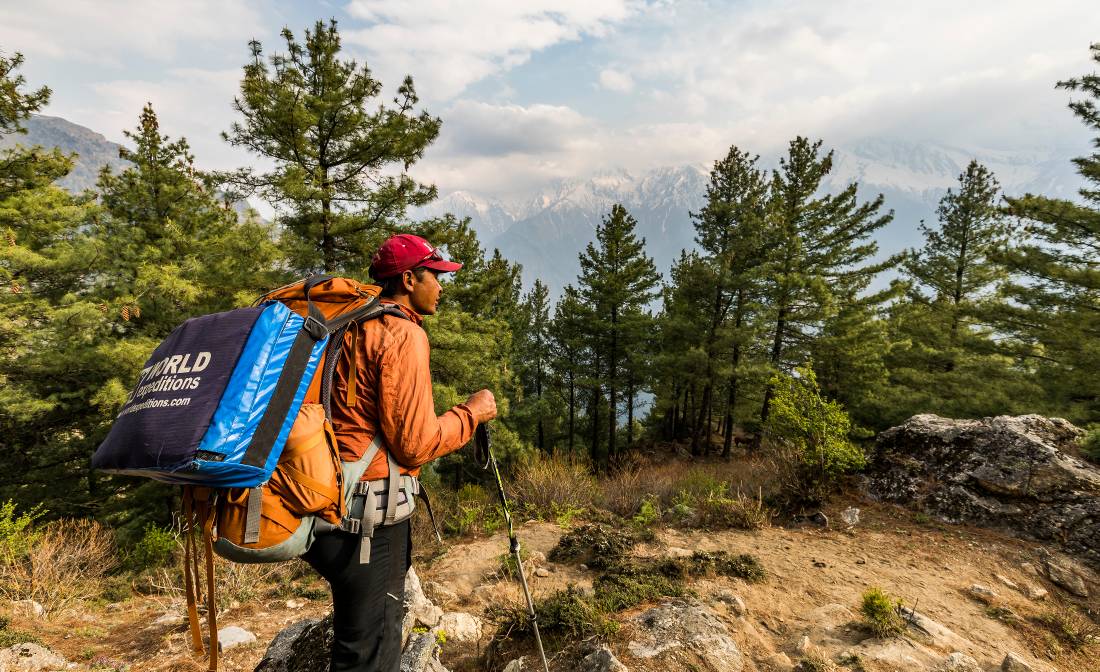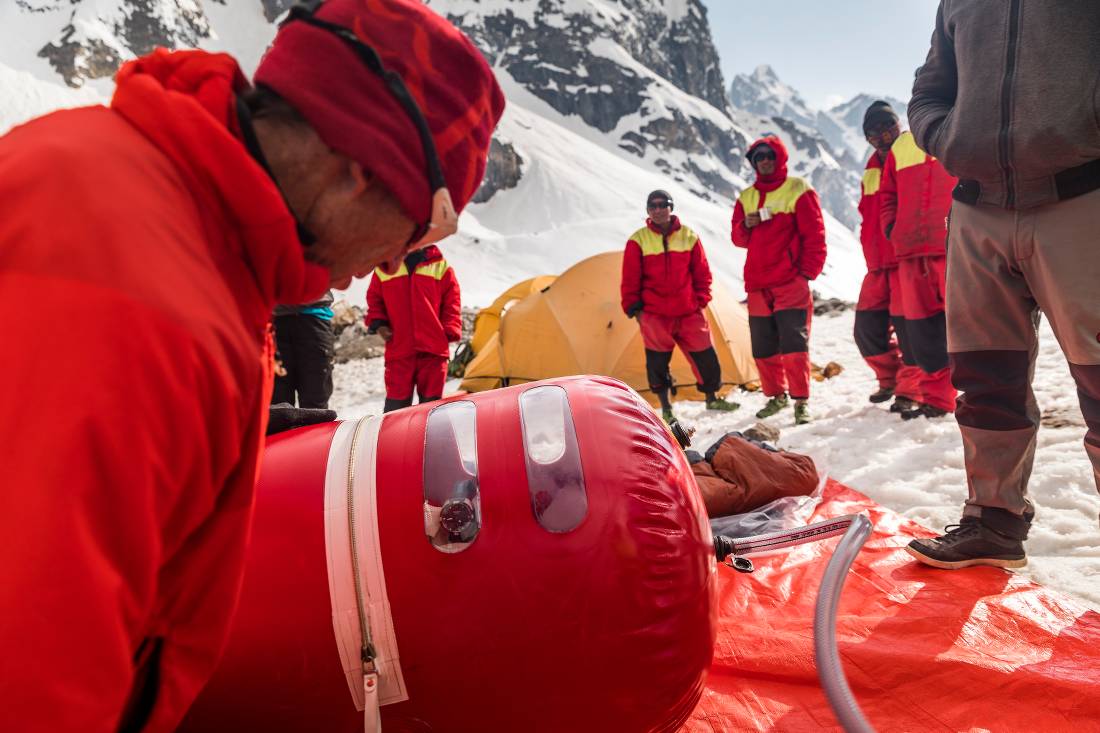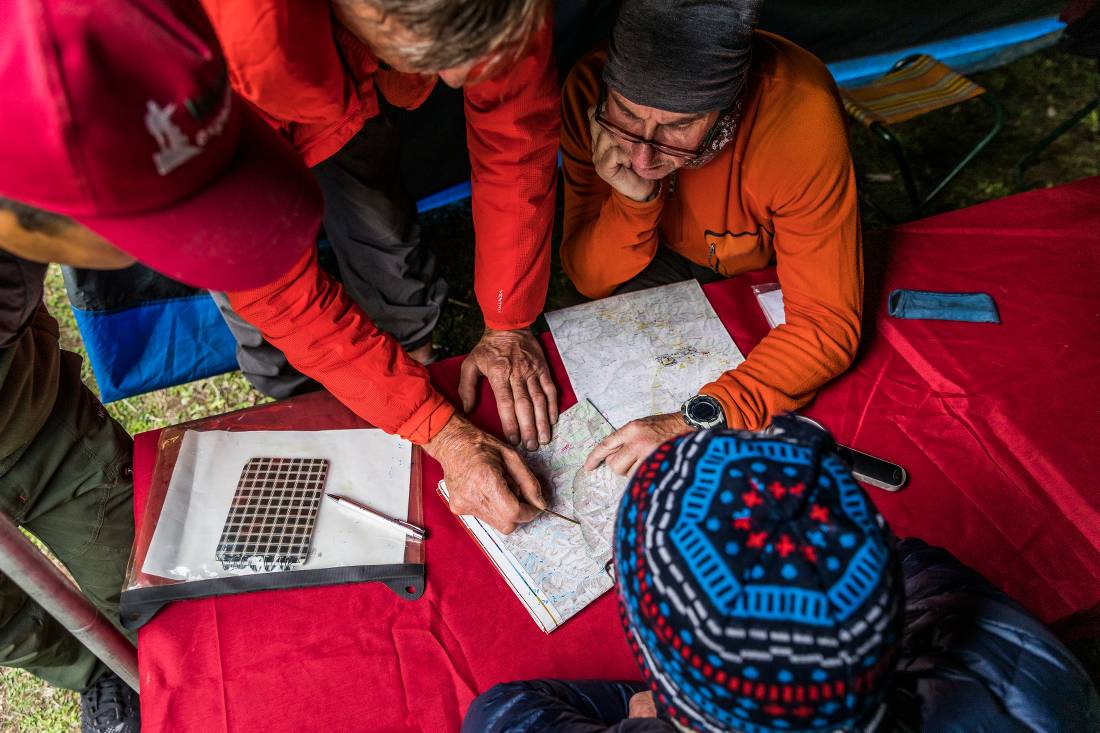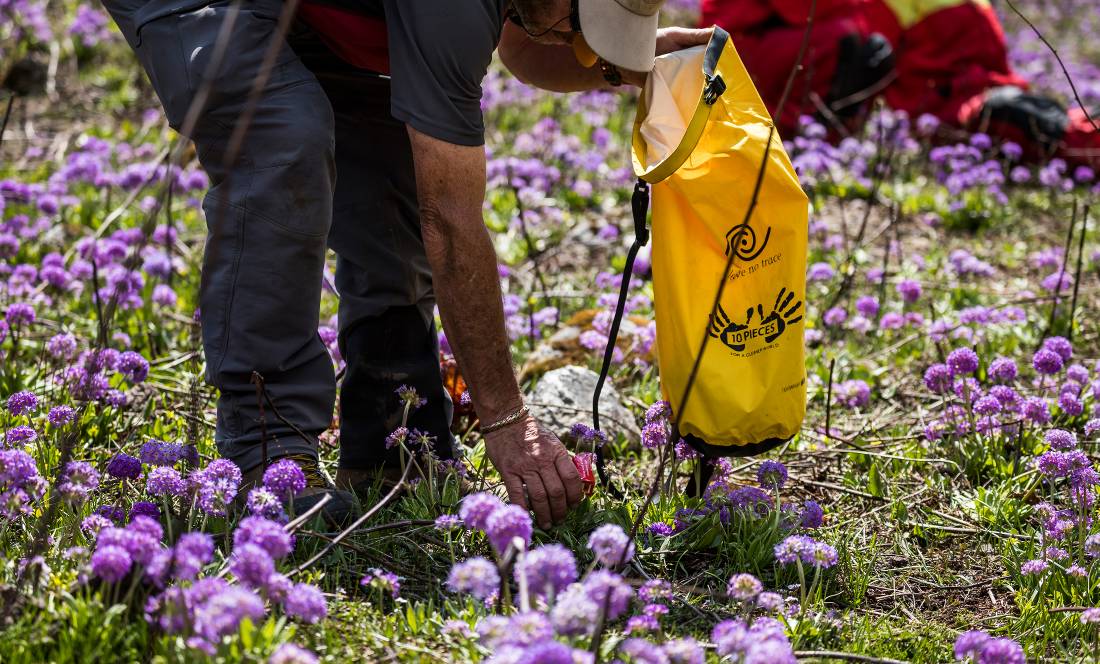Blog home / What to look for in a quality Nepal trek
There's more to choosing your Nepal trek than just the destination and date and navigating all the options can be daunting. To make sure your trip best lives up to your expectations, here are eight things to consider when trekking in Nepal so your adventure holiday is a seamless one.
Minimal impact accommodation
Eco-friendly? Tick. Comfort? Tick. Privacy? Tick. Warmth? Tick. Superb views? Tick! Eco camping offers this and much more.
There's nothing like unwinding in the comfort of one of our scenically located eco campsites in the Everest and Annapurna regions, and I'm sure after a good day’s trek all you want to do is sit back, relax and put your feet up.
Opting for an eco camping experience minimises your environmental footprint with campsites using yak or cow dung to fuel heaters, kerosene is used to cook meals and boil water, as well as utilizing rainwater tanks, composting and septic toilets and incinerators to burn paper and non-toxic plastic waste.
World Expeditions trekkers enjoy exclusive use of private Eco-Comfort Camps located in secluded plots that offer a tranquil camping experience with exceptional views of the Himalaya. It wins out on sustainability for a back to nature experience that doesn't spare on your comfort and supports local people and its Nepali mountain communities.
With standing height tents, off-the-ground beds, clean mattresses and pillows, heated dining areas for meals and 'down time', and hygienic sit down toilets (either flushing or composting depending on altitude), there's plenty to love about choosing an eco camp experience over a tea house trek.
Porter Protection
Mountain porters are an integral part of each trekking or mountaineering adventure in Nepal, so choosing a reputable company that takes care of their staff is a must. On a trek or climb, the entire group – travellers, guides and porters alike – are a team who share the same needs for safety in the unpredictable mountain environment.
We couldn’t get off the beaten path without them, and the self-sufficiency of camping is a style of trekking that is enabled by mountain porters. World Expeditions take porter protection seriously, implementing a Porter Welfare Code of Conduct to ensure safe working conditions for the Nepal porters employed.
Our porters are provided with a good working wage (regulated by the Trekking Agents Association of Nepal and the Labor Union of Nepal), life insurance, income protection insurance, trekking gear and accessories, three meals a day, accommodation, access to the same first aid care that our travellers receive – including emergency helicopter evacuation if required, and have a 30kg weight restriction when carrying goods.
Safety at altitude
Trekkers' safety and well-being should be top priority, which is why World Expeditions follow stringent safety procedures and standards. A comprehensive medical kit travels with every group and on all trips, should the need arise. Naturally, our guides have received first aid training.

On all trips that take you to 4000 metres and above, World Expeditions carry a Portable Altitude Chamber (PAC). This assures you that when needed, we can quickly treat you for high altitude illness. The PAC is an Australian product and is a lightweight hyperbaric chamber that can be easily carried by our porters.

Trained guides
The leaders in the field are the key to a successful expedition and being led by highly trained local guides means you will be well looked after. At the same time, travellers can hugely benefit from the authentic experience they deliver.
A defining attribute to World Expeditions’ success in pioneering Nepal treks since 1975 is the team in Nepal. Our Nepalese guides are real experts with plenty of years experience and who aim to enhance your experience with their enthusiasm and local knowledge.
By training and empowering our guides, we are able to create positive employment opportunities and secure income for them.

From Tim Macartney-Snape, who with Greg Mortimer completed the first Australian summit of Mount Everest, to Bir Singh, one of Nepal's most experienced local guides, our leaders are the key to our success as they strive to make your experience exceptional. We’re very proud of our staff and guides and, judging by all the positive feedback we receive on Nepal, so are our past travellers.
Avoid the single supplement cost
Planning to travel alone by choice and want to enjoy the adventure ahead without being through a curveball of extra charges for wanting to go solo? Joining a small group of like-minded travellers is a great way to waive the single supplement costs.
If you join a World Expeditions adventure as a solo traveller, you'll be matched you with someone of the same gender and won’t pay more. If you, however, want a guaranteed single occupancy, we can also arrange that for a small additional charge.
Thoughtful Travel Practices
When choosing an adventure company to trek with, seeing how their values align with yours is important, such as its responsible tourism practice and their commitment to supporting local communities at every level of the operation. Ask questions like: In what ways do they protect the destination's natural environments and wildlife? How do they minimise the impact of their presence? Are their itineraries sustainable?
Since World Expeditions' inception in 1975, offering BIG adventures with a small environmental footprint is at the heart of every program. Often these sustainable itineraries translate to real costs, but by integrating these practices into in-country operations we are adopting a style of travel that makes the world a better place.
A particular project we run is the 10 Pieces litter collection initiative, which aims to keep the trails in Nepal litter-free. On our treks in Nepal, we ask you to sign up to collect 10 pieces (or more!) of paper or plastic that you find on the trail each day.

Your crew will collect the litter at the end of the day and dispose of it responsibly. Leading by example, your actions educate mountain communities that litter is not aesthetically desirable and is also detrimental to health of wildlife and humans alike. Learn more about our responsible travel initiatives.
Healthy and hearty meals
Unlike most companies, having a full meal service as part of the trip prices has its benefits. There are important reasons for this as it lowers the risk of you getting sick on trek with an assigned cook, ensuring that food is prepared to strict hygiene standards so you stay healthy and eat well.
The price of meals in tea houses or lodges across the Himalaya invariably costs around US$45 per day, often with limited choices and a lot of fried foods – and the higher you go, the pricier it will get. Those meals are often cooked on wood stoves, which contribute to the depletion of forests that are under threat.
On all World Expeditions treks in Nepal, a cook and kitchen crew accompany the group so you can sit back, relax and enjoy a freshly cooked meal. Health, value for money, convenience and positively contributing to Nepali mountain communities, are just some of the reasons why you'll want to enjoy three wholesome and freshly prepared meals a day – with clean drinking water supplied – when on trek with us.
Quality equipment
We all want excellent value for our money and when it comes to trekking in remote and high altitude regions, so it pays to have virtually everything included in your adventure.
For World Expeditions, with exceptional camping service comes quality equipment. You’ll be issued with a trek pack which is free for use during the duration of your Nepal trip. Meaning, you don’t have to carry these items from home and that you don’t have to make the investment yourself.
A typical trek pack includes a:
• Duffle kit bag: your personal belongings carried by our porters during the trek
• Down or fibre-fill jacket: repels the cool Himalayan evenings and mornings
• Sleeping bag: warm sleeping bag to keep you cosy at night
• Sleeping liner or insulated mat: enjoy the added insulation for a more restful night.
Know that your BIG adventure is leaving a positive impact to conserve local environments and support local communities at every level of the operation, including the porters. Start browsing our Nepal trekking adventures and see why we've been the leaders in Himalayan trekking for over four decades >